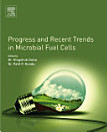Oxygen Reduction Reaction: Fundamentals, Materials, and Applications
About this ebook
About the author
Dr. Kushal Sengupta is currently an Alexander von Humboldt (AvH) fellow at Max Planck institute for Chemical Energy Conversion, Mulheim an der Ruhr, Germany. Before winning the AvH fellowship award, he served as an Assistant Professor in the Department of Chemistry at Abhedananda College under Burdwan University in India (Aug 2020 – Mar 2021). Prior to this, he was a NIH postdoctoral research fellow in the Department of Chemistry and Chemical Biology at Cornell University, USA (Aug 2016 – Dec 2019). He carried out his doctoral studies at Indian Association for the Cultivation of Science, Kolkata, with a CSIR-UGC NET fellowship (2010-2016). He obtained his bachelor’s and master’s degree in Chemistry from Jadavpur University. His areas of research interests lie in the field of bioinorganic chemistry especially in oxygen and proton reduction, electrocatalysis, Alzheimer’s disease, etc, and in field of biophysical chemistry especially in metal homeostasis in bacteria, protein purification, super-resolution fluorescence imaging, etc. He is the recipient of two prestigious international awards, SBIC travel grant (2015) and SNIC student bursary (2014) during his Ph.D. He has authored 26 research articles (till date) in reputed international journals and 2 books chapters and has presented several posters and talks in international and national conferences. He has been actively involved as a reviewer for several scientific publishing houses and has been a member of Society of Bioinorganic Chemistry for several years now.
Dr. Sudipta Chatterjee is currently working as a assistant professor of chemistry at the BITS Pilani Campus in Goa, India. Prior to this, he was a post-doctoral associate for two years (2017-2019) in the department of Chemistry and Chemical Biology at Cornell University, USA. Before joining Cornell, he was a doctoral student (2011-2017) in the department of Inorganic Chemistry at Indian Association for the Cultivation of Science, India. Dr. Chatterjee was the recipient of junior and senior research fellowships funded by the Council for Scientific and Industrial Research (CSIR), Govt. of India. He completed his B.Sc. (2006-2009) from Burdwan University and M.Sc. (2009-2011) from Indian Institute of Technology, Kharagpur. His research areas lie in the field of small molecule activation and catalytic reduction (O2, H+, CO2) towards sustainable energy production, including electrochemical and spectro-electrochemical techniques to isolate and study vital catalytic intermediates for understanding the structure-function correlations. During his PhD, his focus was primarily on the mechanistic investigations of electrocatalytic oxygen reduction and hydrogen evolution reactions of various bio-mimetic systems for monitoring the structural evolution of the reactive centers that help developing improved catalytic systems for sustainable future. Until now, he is the author of 31 international journal articles and 2 book chapters. He has also served as a peer reviewer for several society journals. He has been a member of the Society of Biological Inorganic Chemistry (2015-2018) and American Chemical Society (2018-2019).
Dr. Kingshuk Dutta, FICS, is currently employed as a Scientist in the Advanced Polymer Design and Development Research Laboratory of the Central Institute of Petrochemicals Engineering and Technology, India. Prior to this appointment, he had worked as an Indo-U.S. Postdoctoral Fellow at the Cornell University, U.S.A. (2018-19) and as a National Postdoctoral Fellow at the Indian Institute of Technology – Kharagpur, India (2016-17), both funded by the Science and Engineering Research Board, Govt. of India. Earlier, as a Senior Research Fellow funded by the Council of Scientific and Industrial Research, Govt. of India., he had carried out his doctoral study at the University of Calcutta, India (2013-16). He possesses degrees in both technology (B. Tech. and M. Tech.) and science (B. Sc.), all from University of Calcutta. He was also a recipient of the prestigious Graduate Aptitude Test in Engineering (GATE) and National Scholarship, both from the Ministry of Human Resource Development, Govt. of India. His research interest lies in the fields of electrochemical, photoelectrochemical and bioelectrochemical devices, wastewater treatment, as well as polymer blends/composites and biodegradable polymers. Until date, he has contributed to 62 experimental and review papers in reputed international platforms, 35 book chapters, 1 patent application, and many national and international presentations. In addition, he has edited/co-edited four books published by Elsevier, two books published by the American Chemical Society, and one book published by Wiley. He is currently serving as a Review Editor for Frontiers in Nanotechnology and Frontiers in Fuels, and has also served as a guest associate handling editor for Frontiers in Chemistry and a peer-reviewer for over 190 journal articles, conference papers, book chapters and research project proposals. He is a life member and an elected fellow of the Indian Chemical Society, a life member of the International Exchange Alumni Network (U.S. Department of State) and a member of the Science Advisory Board (U.S.A.). Earlier, he had held memberships of the International Association for Hydrogen Energy (U.S.A.), the International Association of Advanced Materials (Sweden), the Institute for Engineering Research and Publication (India) and the Wiley Advisors Group (U.S.A.).






